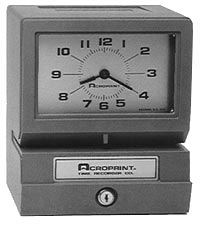'via Blog this'
 Chinese what? Ok, you’ve probably heard of Chinese water torture. And Chinese New Year. And Chinese take-out (personal fave). But ChineseOvertime?
Chinese what? Ok, you’ve probably heard of Chinese water torture. And Chinese New Year. And Chinese take-out (personal fave). But ChineseOvertime?Yes, Chinese Overtime. If you’re in a job in which the work hours tend to fluctuate each week and you get overtime pay, then you may have heard it referred to as either variable workweek overtime pay or half-time overtime pay.
The department managers and assistment managers who make up the class in the Publix managers unpaid overtime class action lawsuit probably don’t care what the heck it’s called—they just believe they’re getting screwed out of pay. And, if you understand how Chinese overtime works, they’re kind of right.
So here goes: a Chinese overtime primer for those who haven’t had the pleasure of being paid this way…
In some jobs, the hours tend to fluctuate each week. Busier weeks call for longer hours; quiet weeks call for shorter hours. Many times when a job’s hours fluctuate, an employer will pay salaries based on a fixed salary for those fluctuating weeks. So the base salary—the straight-time pay—is the same each week even though the hours may in fact fluctuate.
The upside is that when there isn’t much work, the worker gets paid the set straight-time amount. Sort of a mini-coup for the worker, right?—work less, get paid the same.
The downside, however…well, let’s just say the Publix managers have been living more of the downside (allegedly) than the upside and that’s why they’ve filed the Publix class action lawsuit.
Here’s an example of how it would work–it’s tricky so try to hang with me. Say you’re paid $200 a week as your fixed salary. So regardless of whether you work 22 hours or you work 46 hours that week, you’re getting paid $200 for the week. However, if you worked the 46 hours, you’ve worked overtime and should get overtime pay. And this is where it gets tricky..
See, because you were ALREADY PAID straight time pay for those six hours according to how your pay is calculated (i.e., you get a fixed salary no matter how many hours you work), you won’t get time-and-a-half pay for your overtime hours. Those six hours are paid at only HALF your regular rate–which in management’s eyes is time-and-a-half because they’ve already paid you your fixed salary for those six overtime hours.
Nice deal, eh? Hell yeah for the employers–not so for the employees.
Comments (4)
If you are going to use an example, use a correct one. This method is called salaried non-exempt employee status. The reason I made this statement is because take your "for instance" example. 200.00 / 46 hours = 4.35 per hour than your client would be in non-complaince with federal labor laws, failing to pay prevailing required MW of $7.25. They would be prime for a FLSA investigation by the WHD.
1 reply ·



No comments:
Post a Comment